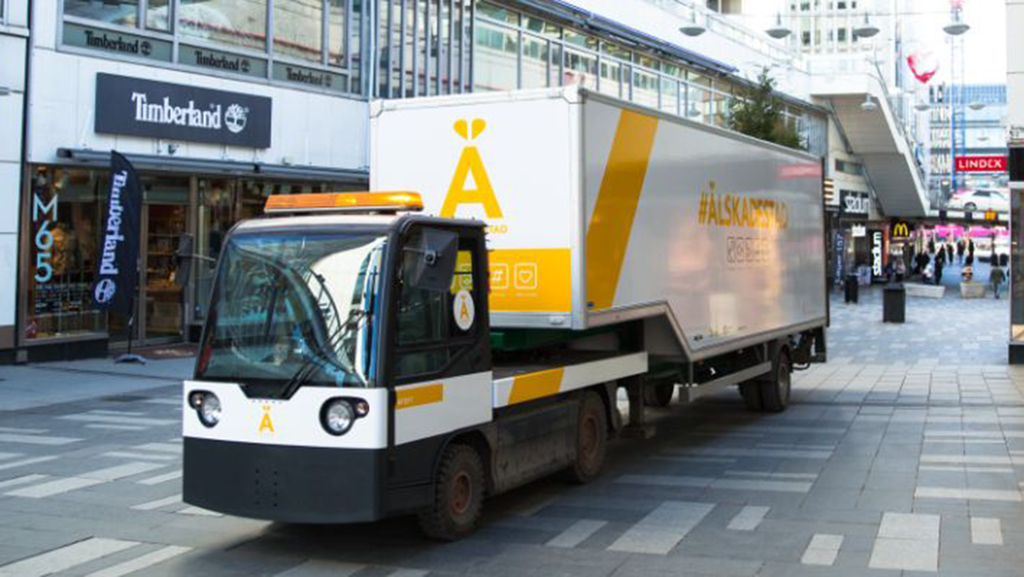Urban Logistics Barkarby
What might a sustainable flow of products and goods to and from the city look like in the future? How do we use city spaces in an optimal way? What kind of vehicles should we use and how can the city's return flows of materials be optimized? The Urban Logistics Barkarby project investigates this by creating the preconditions for a circular solution for city logistics in Northern Europe's largest urban development project.

The project's starting point is the city and how future urban planning prepares the city's various actors for efficient circular material flows, linked to society's consumption. The project shows how an urban circular material flow can work by describing how a solution is implemented and commissioned in a subsequent system demonstration in a city district.
The project builds on the Älskade Stad concept, which means that large fossil-powered vehicles for goods and recycling can be replaced with smaller electric-powered vehicles. With the help of city hubs, goods and return materials are sorted and loaded, which means that energy efficiency increases radically. The concept also means that significantly less space is needed in loading zones as smaller electric vehicles are used instead of trucks and refuse trucks. Furthermore, the number of dockings is reduced by transporting several materials on a single route and with one vehicle. Not least, the smaller electric vehicles are able to deliver and pick up materials from, for example, garages in lifts, which means more free space on the streets.
By using an open platform, all the city's actors who handle goods and goods to and from the city can become actors in a circular material flow. This means that trade businesses as well as recycling actors and pure logistics actors can become part of the solution.
Goals for the project
The project's goal is to further develop the solution from Älskade Stad by developing a description and design for circular city logistics for material flows. The project will also develop a business model for this. The hope is for the design to be implemented and tested in Barkarbystaden in Järfälla municipality.
Take part in the project's final documentation
Period
November 2022 - December 2023
Contact
Magnus Fransson, Sustainable Innovation
magnus.fransson@sust.se
Partners
Barkarby Science, Bring, Järfälla kommun, KTH, Ragn-Sells, ReLog och Sustainable Innovation
Vinnova number
2022-02718


